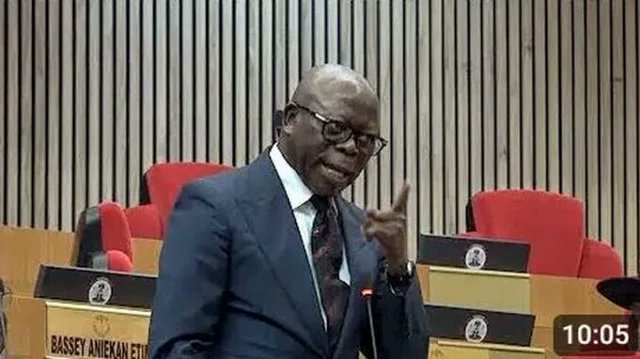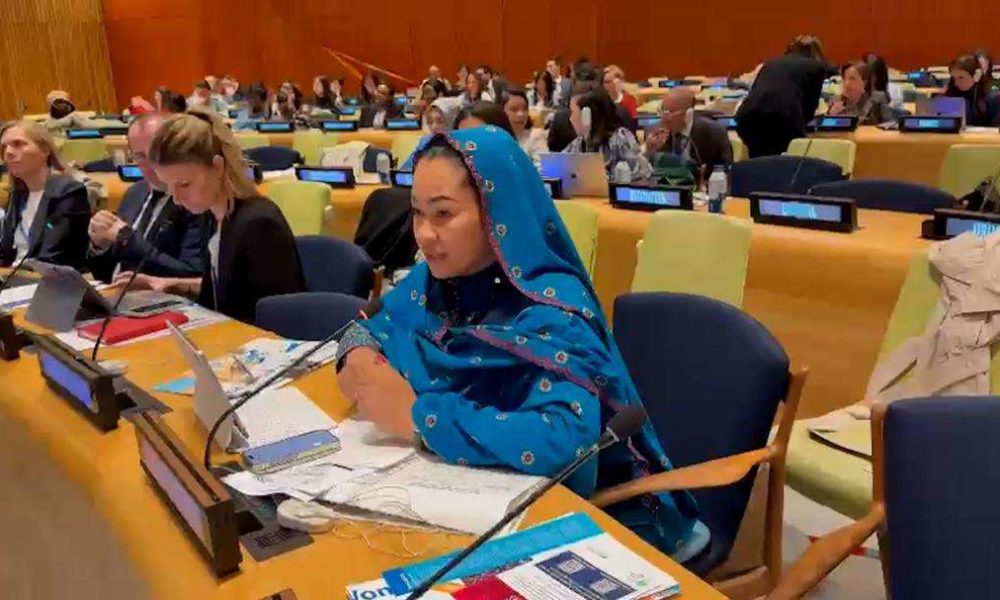A mild drama played out in the Senate on Tuesday when Edo North Senator, Adams Oshiomhole, openly accused the upper chamber of acting like a “rubber stamp” to the executive arm of government.
The former Edo State governor, speaking during plenary, decried what he called a “disturbing trend” of rushing through laws without proper scrutiny — a practice he warned could destroy the integrity of the legislature.
The uproar began when Senate Leader Opeyemi Bamidele presented four concurrence bills from the House of Representatives.
They included amendments to the National Examination Council (NECO) Act, the establishment of the National Board for Arabic and Islamic Studies, the Nigeria Weights and Measures Regulatory Agency, and the Chartered Institute of Training and Development of Nigeria.
All four bills passed first, second, and third readings in a single sitting, as presiding Deputy Senate President Barau Jibrin called for swift voice votes.
But Oshiomhole rose in protest. “I’m seriously troubled by the way we are making these laws,” he said.
“These documents were just circulated — four bills at once. Even if we are geniuses, how can anyone make a meaningful contribution in one minute? We are not meant to rubber-stamp.”
A Call For Legislative Integrity
Oshiomhole’s remarks drew murmurs across the chamber, with some senators appearing uneasy. He argued that such legislative shortcuts erode public trust and reduce the National Assembly to a mere extension of the presidency.
“If this is how we will continue, then we don’t need two chambers. One could simply pass laws for both,” he added.
The senator also questioned the rationale behind creating new regulatory agencies without a clear national purpose.
“What exactly is ‘training and development’ in this context?” he asked. “When we keep creating laws for every type of training or development, it makes no sense.”
Observers say his frustration mirrors growing concern that the 10th Senate, under Senate President Godswill Akpabio, has been too deferential to the executive.
Akpabio’s Senate Under Scrutiny
Since its inauguration in June 2023, Akpabio’s leadership has been frequently accused of cowering to the executive branch led by President Bola Tinubu. Critics say the chamber’s cooperative stance on executive bills has weakened oversight and muted dissenting voices.
Akpabio, however, has repeatedly rejected the “rubber stamp” tag. “Our relationship with the executive is frank and firm,” he said recently. “It will remain so regardless of the administration’s policies.”
Still, Oshiomhole’s rebuke appeared to resonate. Presiding over the session, Deputy Senate President Barau Jibrin admitted the concerns were valid and immediately issued a directive.
“Chairman of Rules and Business, ensure that senators receive these bills at least two days before debate,” Jibrin ordered Senator Titus Zam, who chairs the committee.
He defended the Senate’s long-standing practice of fast-tracking concurrence bills since they have already been debated in the House of Representatives, but added: “Even though concurrence bills have passed through due process in the House, we must also do our own scrutiny.”
Oshiomhole’s intervention may reignite the larger debate over legislative independence and Nigeria’s separation of powers. Analysts say his outburst reflects growing internal unease even within the ruling APC and the public sentiment that the National Assembly has lost its bite for checks and balances.
Institutions like the Centre for Democracy and Development (CDD) and BudgIT have also expressed similar viewpoints over weak parliamentary oversight and transparency in recent years.
Rate, Like 👍, Comment 💬, Share this article, Follow us on our social media handles, and Submit your own story to get featured and earn rewards!







